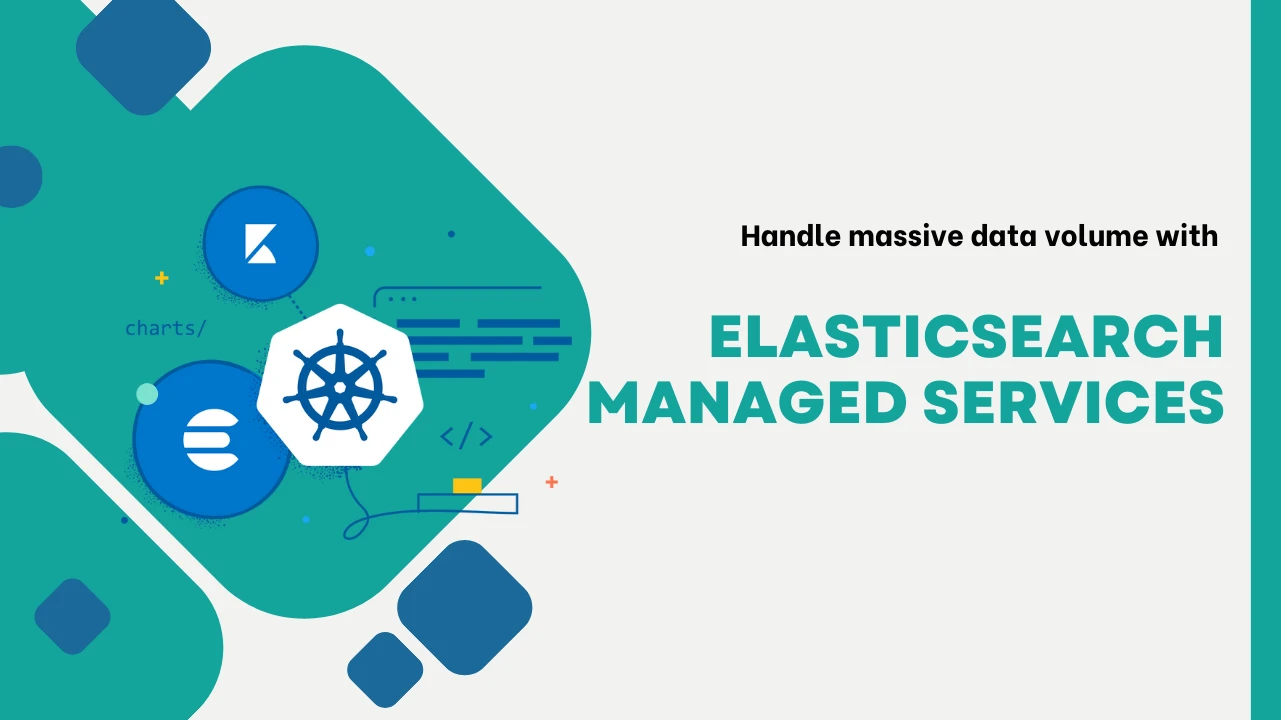In the age of data-driven decision-making, organizations across various industries are faced with the challenge of handling massive data volumes efficiently. As data continues to grow exponentially, traditional database management systems often struggle to provide the necessary performance, scalability, and search capabilities. This is where Elasticsearch managed services come into play. In this article, we will explore how Elasticsearch managed services can help businesses handle massive data volume effectively, enabling them to extract valuable insights and make data-driven decisions.
Understanding the Challenge of Massive Data Volume
With the proliferation of digital technologies and the advent of the Internet of Things (IoT), organizations are generating and collecting vast amounts of data. This data comes from numerous sources, including customer interactions, machine logs, social media feeds, and more. Managing and processing such large volumes of data using traditional systems can be overwhelming, resulting in slow performance, limited scalability, and difficulty in searching and analyzing the data.

Introducing Elasticsearch Managed Services
Elasticsearch managed services, such as those provided by cloud providers and specialized service providers, offer a solution to the challenges posed by massive data volume. Elasticsearch is an open-source, distributed search and analytics engine built on Apache Lucene. Managed services provide a fully managed and scalable Elasticsearch infrastructure, relieving organizations from the operational burden of setting up and maintaining their own Elasticsearch clusters.
Benefits of Elasticsearch Managed Services
Utilizing Elasticsearch managed services offers several benefits for handling massive data volume:
Scalability: Elasticsearch managed services allow organizations to scale their infrastructure seamlessly as data volume increases, ensuring optimal performance and responsiveness.
Real-time Search and Analytics: Elasticsearch excels in providing lightning-fast search and analytics capabilities, enabling organizations to gain insights from their data in real time.
Ease of Use: Managed services abstract away the complexities of setting up and managing Elasticsearch clusters, providing organizations with a user-friendly interface and eliminating the need for extensive technical expertise.
High Availability and Reliability: Elasticsearch managed services typically offer built-in redundancy and fault tolerance, ensuring that data remains available even in the event of hardware failures or network issues.
Automatic Updates and Maintenance: Service providers take care of updates, security patches, and system maintenance, allowing organizations to focus on extracting value from their data.
Key Features and Capabilities
Elasticsearch managed services offer a range of features and capabilities designed to handle massive data volume effectively:
Distributed Architecture: Elasticsearch leverages a distributed architecture, allowing organizations to scale horizontally by adding more nodes to the cluster as data volume grows.
Full-Text Search: Elasticsearch enables full-text search across large datasets, returning highly relevant results with sub-second response times.
Near Real-Time Analytics: Organizations can perform complex aggregations, filtering, and analytics on their data in near real-time, enabling timely decision-making.
Advanced Query Language: Elasticsearch provides a powerful query language that supports complex search queries, filters, aggregations, and geospatial queries.
Data Visualization: Elasticsearch integrates with popular data visualization tools, such as Kibana, to create interactive and visually appealing dashboards and reports.
How to Get Started with Elasticsearch Managed Services
To get started with Elasticsearch managed services, follow these steps:
Evaluate Service Providers: Research and compare different service providers offering Elasticsearch managed services. Consider factors such as pricing, performance guarantees, security, and customer support.
Assess Data Volume and Requirements: Determine the size of your data volume and the specific requirements for search, analytics, and scalability.
Provision Elasticsearch Cluster: Sign up with the chosen service provider, provision an Elasticsearch cluster, and configure it according to your requirements.
Data Ingestion: Prepare your data for ingestion into Elasticsearch. This may involve data transformation, normalization, and indexing.
Indexing and Searching: Define your data schema and mapping in Elasticsearch and start indexing your data. Once indexed, you can start searching and analyzing it using Elasticsearch’s query capabilities.
Monitoring and Optimization: Continuously monitor the performance of your Elasticsearch cluster and optimize its configuration as needed to ensure efficient data handling.

Real-World Use Cases
Elasticsearch managed services have found applications across various industries:
E-commerce: Retailers use Elasticsearch to power fast and accurate product searches, personalized recommendations, and real-time inventory management.
Log Analytics: Organizations leverage Elasticsearch to ingest and analyze log data, enabling them to identify system issues, troubleshoot errors, and detect anomalies.
Security and Threat Intelligence: Elasticsearch assists in analyzing security logs and threat intelligence data, enabling real-time detection and response to potential security threats.
Healthcare: Healthcare providers utilize Elasticsearch to store and search patient records, perform medical research, and identify patterns for disease surveillance.
Media and Publishing: Media companies use Elasticsearch to power content search and recommendations, enabling users to find relevant articles, videos, and podcasts quickly.
Best Practices for Handling Massive Data Volume
Consider the following best practices when handling massive data volume with Elasticsearch managed services:
Data Indexing Strategies: Optimize data indexing by choosing appropriate field types, defining efficient mappings, and using bulk indexing for better performance.
Data Partitioning: Partition data across multiple indices or shards to distribute the workload and enable parallel processing.
Optimized Queries: Design queries that take advantage of Elasticsearch’s query language features, such as filtering, aggregations, and caching, to achieve optimal search and analytics performance.
Cluster Monitoring and Scaling: Monitor cluster health, resource utilization, and query performance regularly. Scale your Elasticsearch cluster proactively to accommodate increasing data volume.
Backup and Disaster Recovery: Implement regular backups and disaster recovery strategies to protect against data loss and ensure business continuity.
Need help on maintaining Azure Security Center Secure Score of Clients?
Our experts can help you on all kinds of works on Azure Security Center.
Conclusion
Handling massive data volume is a critical challenge for organizations in today’s data-driven world. Elasticsearch managed services provide a powerful solution to efficiently manage and extract insights from large datasets. By leveraging the scalability, speed, and search capabilities of Elasticsearch, organizations can unleash the full potential of their data, gaining a competitive advantage in their respective industries.








